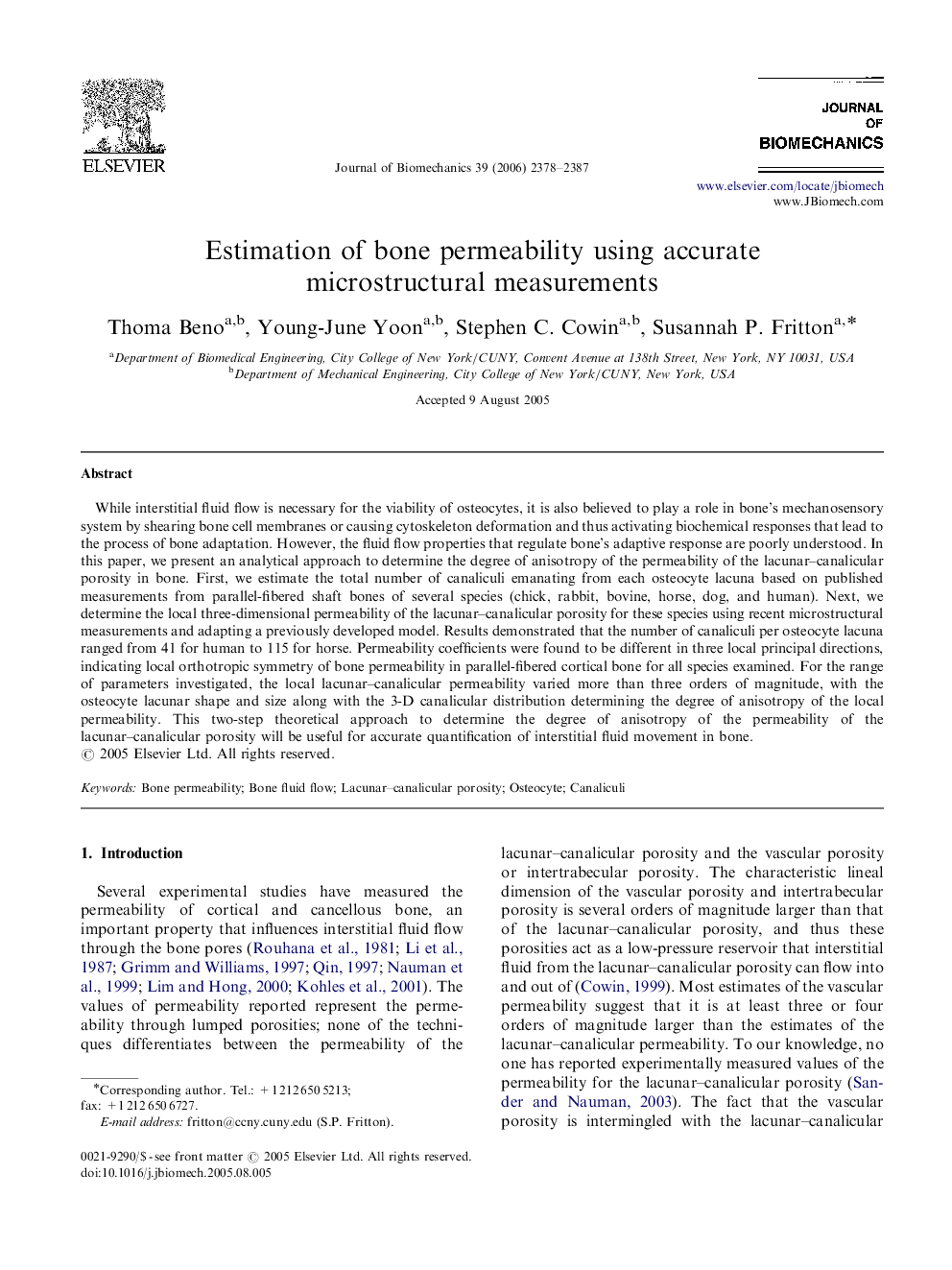| کد مقاله | کد نشریه | سال انتشار | مقاله انگلیسی | نسخه تمام متن |
|---|---|---|---|---|
| 875131 | 910362 | 2006 | 10 صفحه PDF | دانلود رایگان |

While interstitial fluid flow is necessary for the viability of osteocytes, it is also believed to play a role in bone's mechanosensory system by shearing bone cell membranes or causing cytoskeleton deformation and thus activating biochemical responses that lead to the process of bone adaptation. However, the fluid flow properties that regulate bone's adaptive response are poorly understood. In this paper, we present an analytical approach to determine the degree of anisotropy of the permeability of the lacunar–canalicular porosity in bone. First, we estimate the total number of canaliculi emanating from each osteocyte lacuna based on published measurements from parallel-fibered shaft bones of several species (chick, rabbit, bovine, horse, dog, and human). Next, we determine the local three-dimensional permeability of the lacunar–canalicular porosity for these species using recent microstructural measurements and adapting a previously developed model. Results demonstrated that the number of canaliculi per osteocyte lacuna ranged from 41 for human to 115 for horse. Permeability coefficients were found to be different in three local principal directions, indicating local orthotropic symmetry of bone permeability in parallel-fibered cortical bone for all species examined. For the range of parameters investigated, the local lacunar–canalicular permeability varied more than three orders of magnitude, with the osteocyte lacunar shape and size along with the 3-D canalicular distribution determining the degree of anisotropy of the local permeability. This two-step theoretical approach to determine the degree of anisotropy of the permeability of the lacunar–canalicular porosity will be useful for accurate quantification of interstitial fluid movement in bone.
Journal: Journal of Biomechanics - Volume 39, Issue 13, 2006, Pages 2378–2387